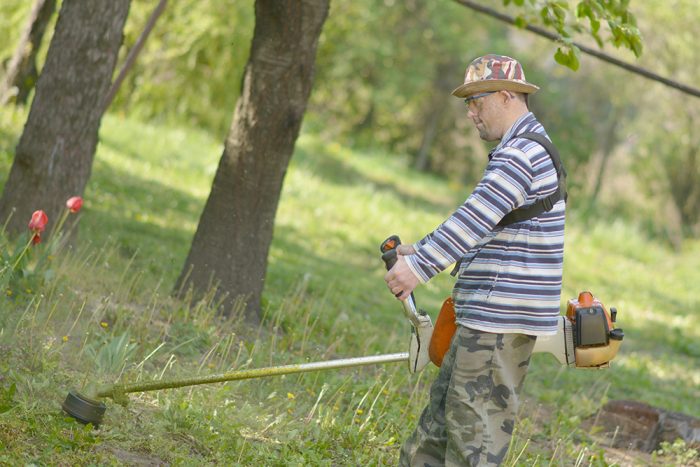Carol Ferenz
Occupational Services Wants to Preserve 14(c) Organizations for People With Disabilities
Residential ISP Staffing Training Sessions 2022
ODP Announcement 22-017 is to announce that Residential ISP Staffing training sessions are now available from January through June 30, 2022. Residential ISP Staffing trainings described in ODP Announcement 21-057 have been completed, but additional training can be provided by agency professionals who have volunteered to provide training and have participated in delivering training in the fall of 2021, referred to ODP Designated Trainers.
Notice of a Change to the Federal Reimbursement of Transportation Costs for 2022
ODP Announcement 22-014 informs providers that the United States General Services Administration announced a change for the rate of Transportation Mile reimbursement rate, procedure code W7271, beginning January 1, 2022. The new rate is $0.585 per mile.
This communication provides notice of the rate change as well as provides instruction for Supports Coordination Organizations (SCOs) on how to add transportation mileage to the vendor screen. It also instructs direct service providers on how to submit claim adjustments, if applicable.
OSHA Hosting Free Webinar on Workplace Injury Recordkeeping Requirements
Now Available: Version 3 of the Operational Guide for the AAW During the Federal COVID-19 PHE
ODP Announcement 22-015 announces that the Operational Guide for the Adult Autism Waiver (AAW) has been updated to reflect current guidance from the Centers for Disease Control and Prevention (CDC), the Centers for Medicare and Medicaid Services (CMS), and the Pennsylvania Department of Health. Additionally, guidance has been added regarding regulatory compliance during the COVID-19 pandemic.
2022 ASD Virtual Seminar on Positive Behavioral Supports: Meaningful, Everyday Application
We are always looking for better ways to support someone to achieve the quality of life they desire. This requires a social, behavioral, and biological understanding of that person. Positive Behavioral Support (PBS) is an empirically documented, person-centered approach that can be used in day-to-day supports for all people across all systems. For those of you who are not familiar with PBS, ODP will provide an overview of this framework, sharing examples and ways that this has been implemented. For those of you who have a general understanding of the essential elements of PBS, ODP will provide you with tools and ways to infuse PBS into your programs and supports to strengthen your focus on supporting a positive quality of life.
Please join ODP on one of the following dates and times:
- Wednesday, April 6, 2022, from 12:30 pm–4:30 pm
- Thursday, April 7, 2022, from 10:00 am–2:00 pm
- Tuesday, April 12, 2022, from 2:00 pm–6:00 pm
- Thursday, April 21, 2022, from 9:00 am–1:00 pm
- Tuesday, April 26, 2022, from 11:00 am–3:00 pm
Registration information will be released in the near future.
Clarification of Incident Management Responsibilities for SCOs in the AAW
ODP Announcement 22-012 provides information regarding the Office of Developmental Programs (ODP) Bulletin 00-21-02, Incident Management, including the specific roles and responsibilities for Supports Coordination Organizations (SCOs). On June 25, 2021, ODP released Announcement 21-049 to clarify that SCOs were not expected to report more than what they were currently reporting until further notice. ODP is clarifying that announcement 21-049 does not apply to the Adult Autism Waiver (AAW).
SCOs serving individuals in the AAW have always been required to report all incidents that occurred in the absence of a provider rendering services at the time of the incident or if the target of an investigation is not an employee or volunteer of a provider organization. There has been no change in those requirements.
This data is critical to evaluating AAW program outcomes. Please note that with the release of ODP Bulletin 00-21-02 that was effective July 1, 2021, two new categories, Passive Neglect and Self-Neglect can be used to report incidents that were previously reported as Neglect when applicable. For further clarification on Passive Neglect and Self-Neglect, refer to the Learning Management System (LMS) for the recorded module on Enterprise Incident Management (EIM) System Changes, County Management and SC Incidents.
The SCO has a responsibility to respond to and assess emergency situations and incidents as well as assure that appropriate actions are taken to protect the health and welfare of participants. Incident management activities that are the responsibility of and completed by the SCO are billable activities. Billable incident management activities are considered part of the SCO’s function of location, coordinating, and monitoring.
SCOs are responsible for checking alerts generated by Enterprise Incident Management (EIM) that identify incidents entered for participants receiving services through their organization. SCOs shall monitor individual incidents in EIM and make recommendations to ODP regarding the appropriateness and effectiveness of the provider’s actions taken to protect the health and safety of the participant as described in the initial incident report. They must also monitor final EIM incident reports to determine if corrective actions are appropriate, revisions to the Individual Service Plans (ISP) are needed, or additional monitoring of the situation is necessary. Monitoring of incidents by the SCO is integral in helping the ODP incident management reviewer in making a determination regarding the approval or disapproval of the incident report.
For targeted technical assistance or questions, please contact ODP’s Bureau of Supports for Autism and Special Populations’ Provider Support mailbox.
Targeted Support Management Bulletin Training
ODP Announcement 22-011 announces that, in preparation for revisions to the Targeted Support Management (TSM) Bulletin, the Office of Developmental Programs (ODP) is offering training for Supports Coordination Organizations (SCOs) and Administrative Entities (AEs) that covers important updated information to the soon-to-be-released TSM Bulletin.
Training can be found on MyODP. The course “Understanding and Implementing the Targeted Support Management Bulletin #00-22-01” is available now.
Additionally, ODP will be offering an accompanying virtual office hour (VOH) session where ODP leadership will be available to address any TSM-related questions. The VOH session is scheduled for March 1, 2022, from 2:00 pm–3:00 pm and is open by registration only. Prior to registering for the VOH, ODP recommends participants review both the draft TSM Bulletin and the “Understanding and Implementing the Targeted Support Management Bulletin” webcast.
2022 Virtual Everyday Lives Conference — Save the Date!

 The Office of Developmental Programs invites you to save the date for the 2022 Virtual Everyday Lives Conference. The Everyday Lives Conference is a statewide event that presents pertinent information to individuals with a disability and/or autism, their families, and the professionals that support them in an effort to empower individuals to live their ideal everyday life.
The Office of Developmental Programs invites you to save the date for the 2022 Virtual Everyday Lives Conference. The Everyday Lives Conference is a statewide event that presents pertinent information to individuals with a disability and/or autism, their families, and the professionals that support them in an effort to empower individuals to live their ideal everyday life.
















